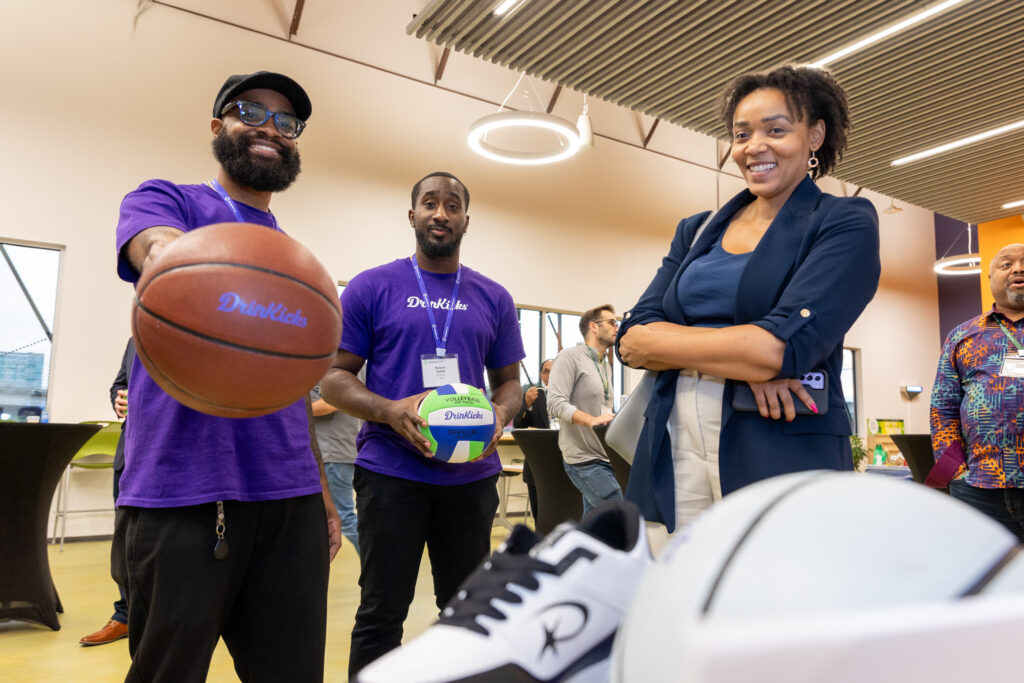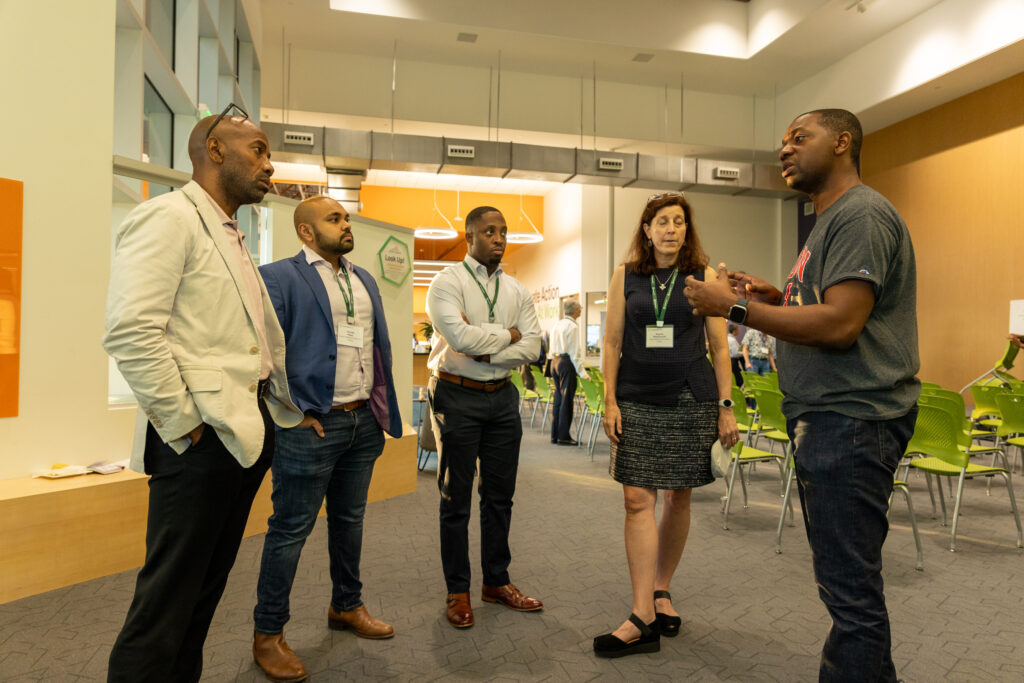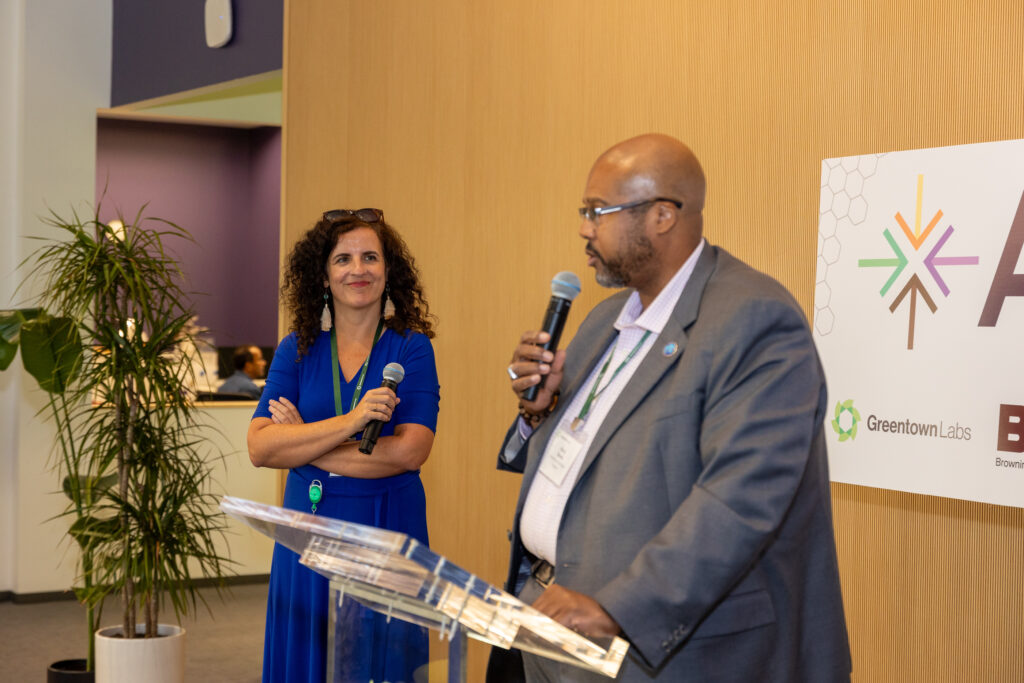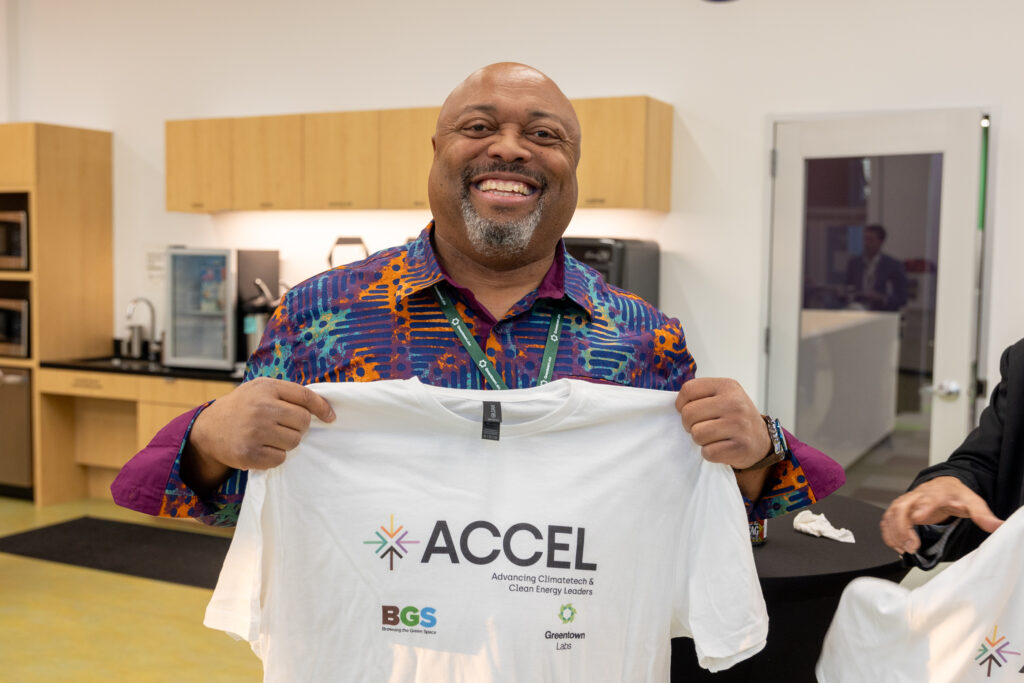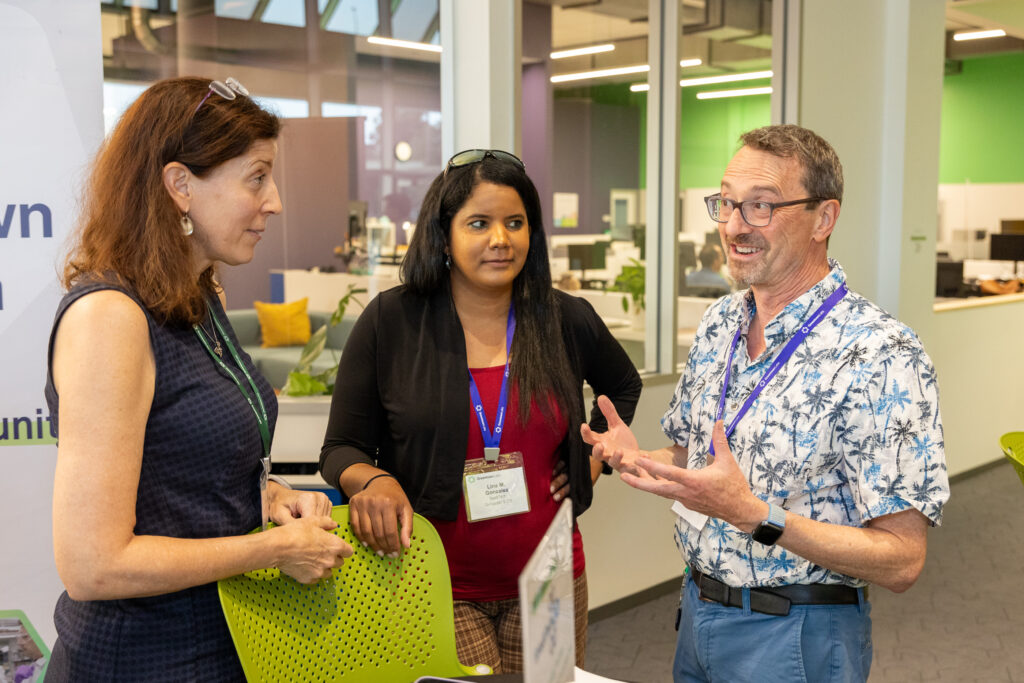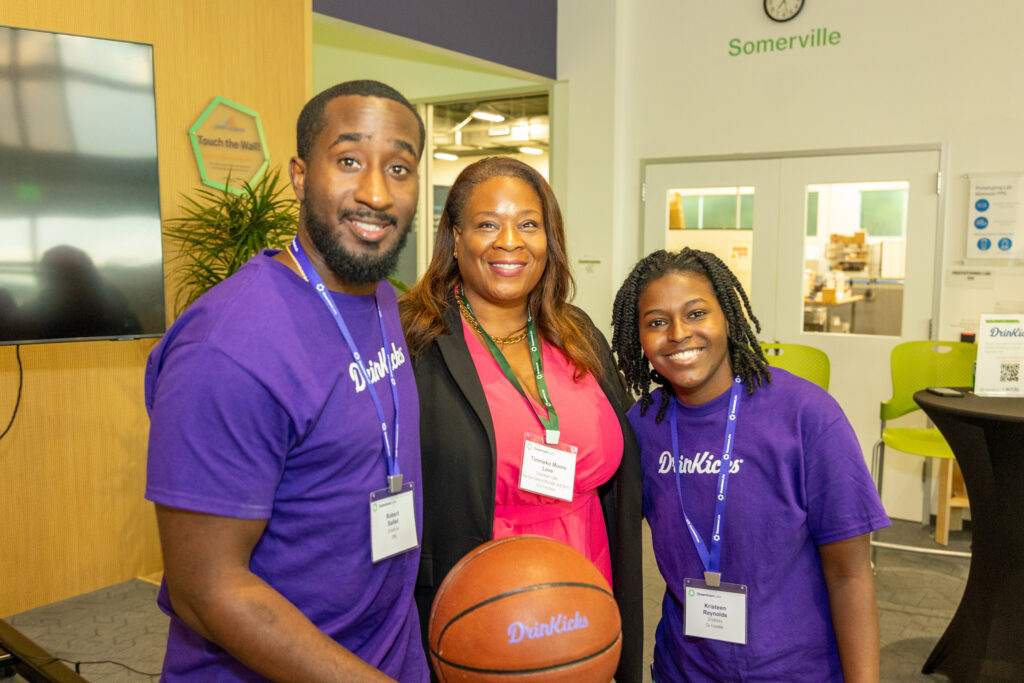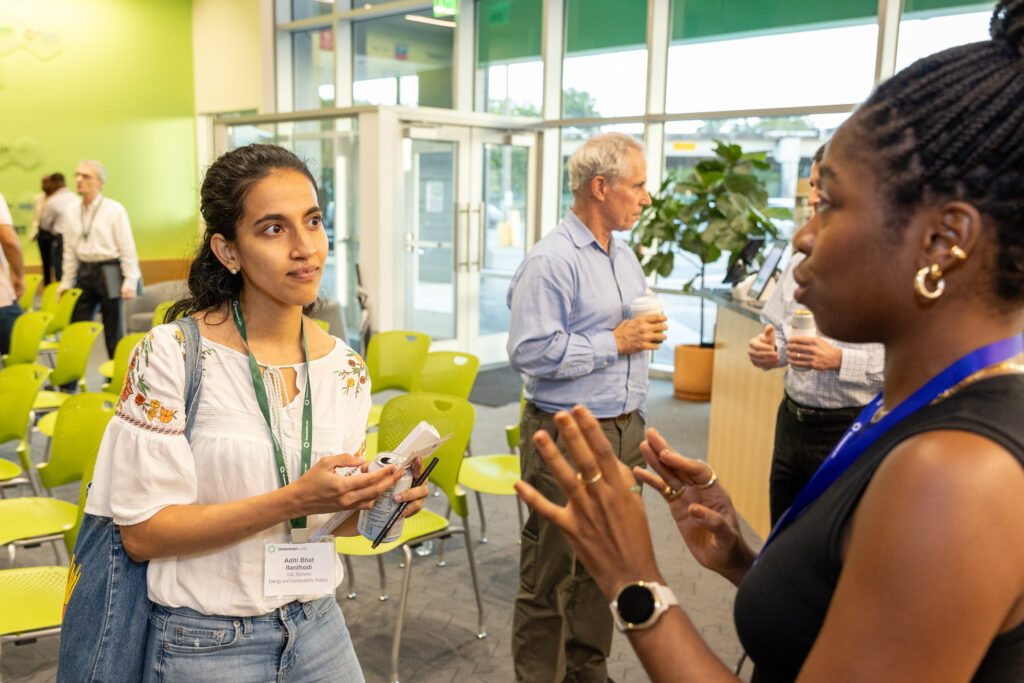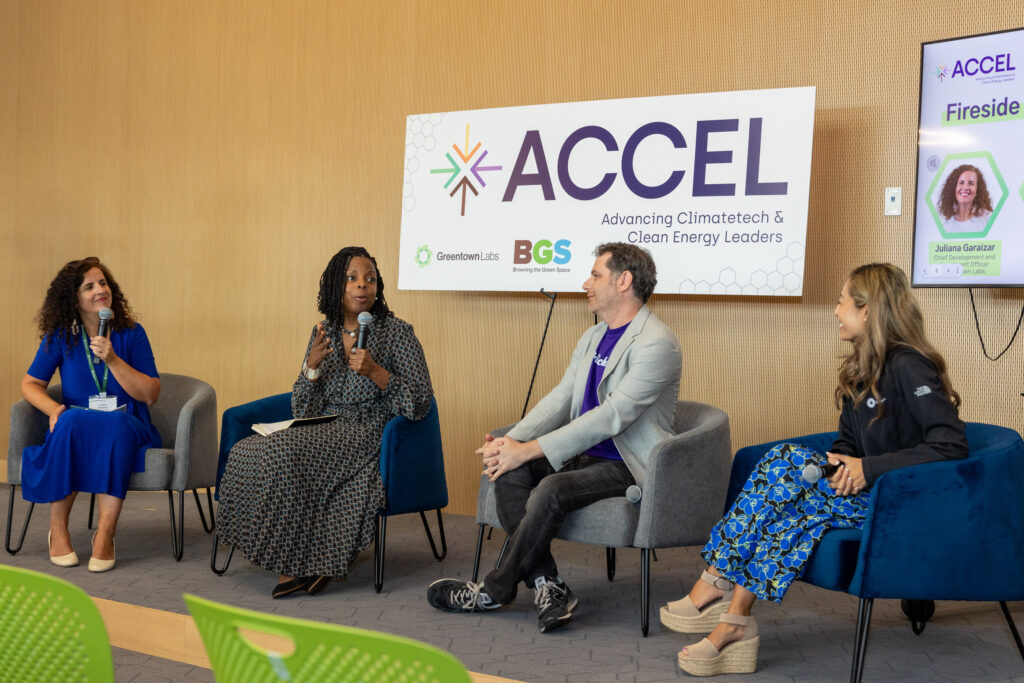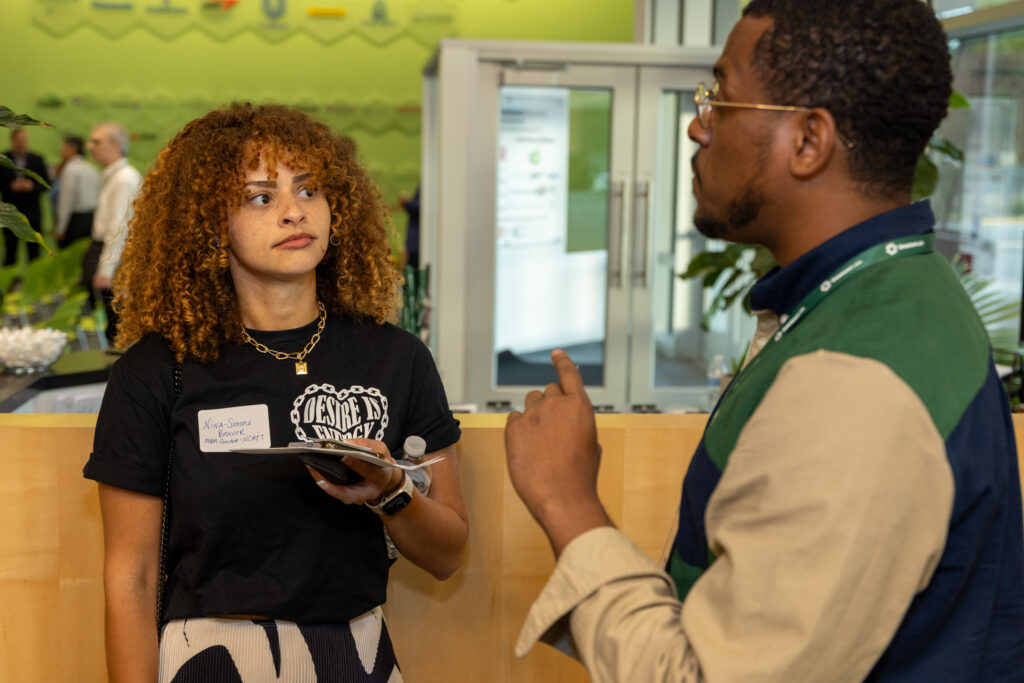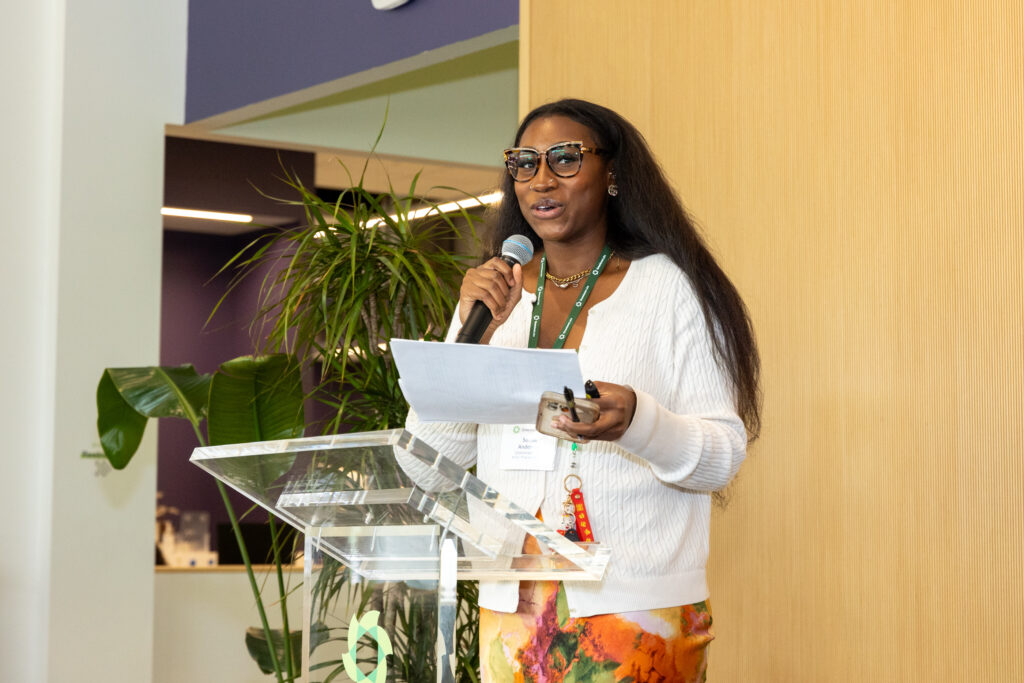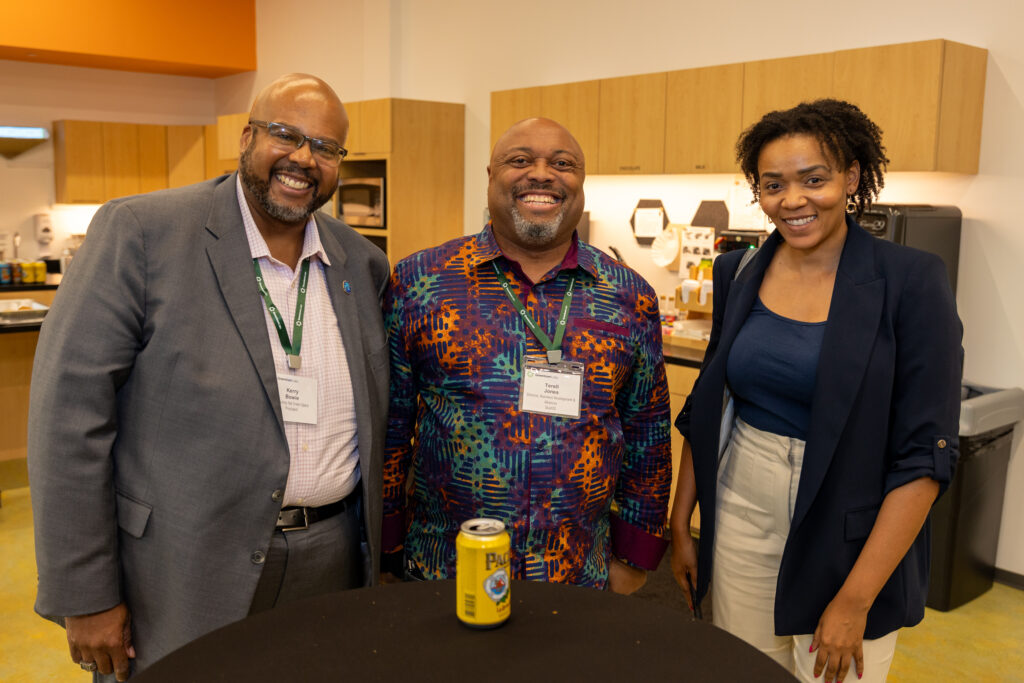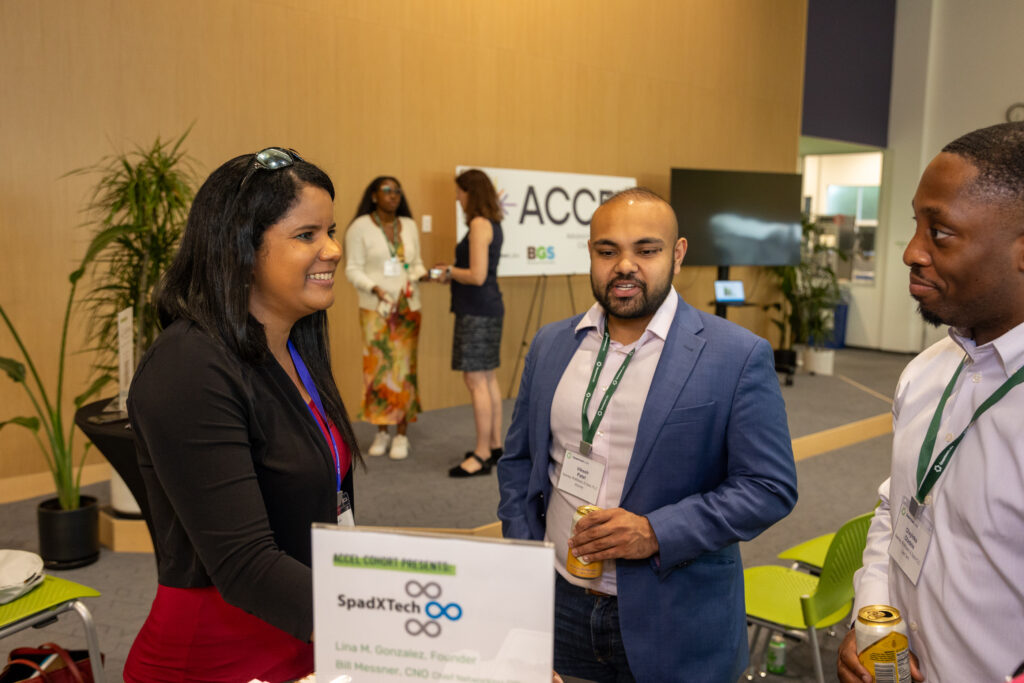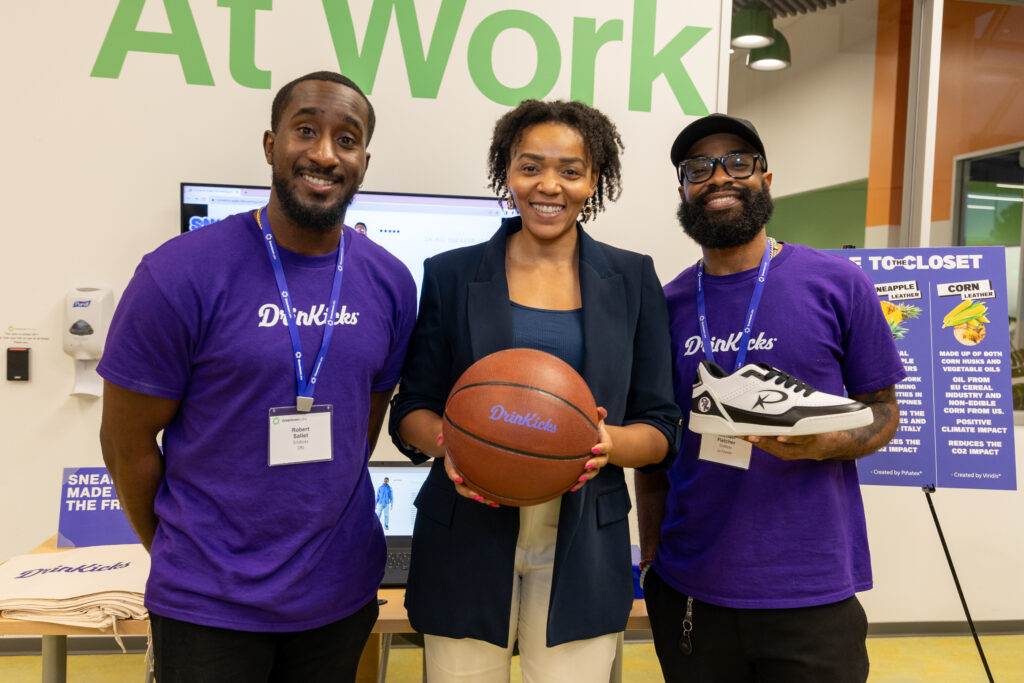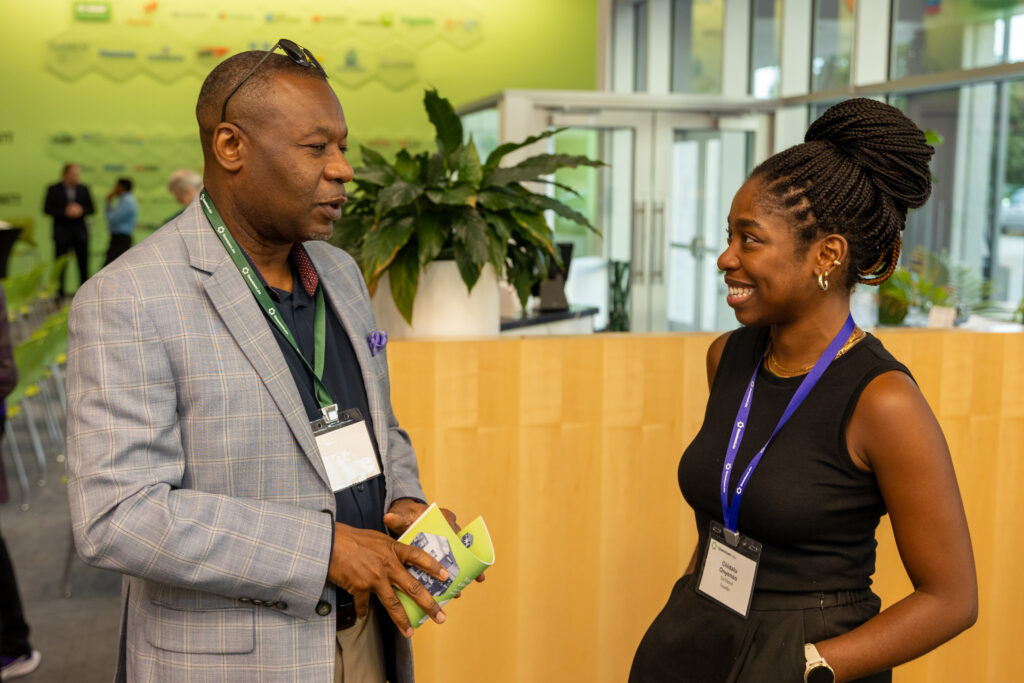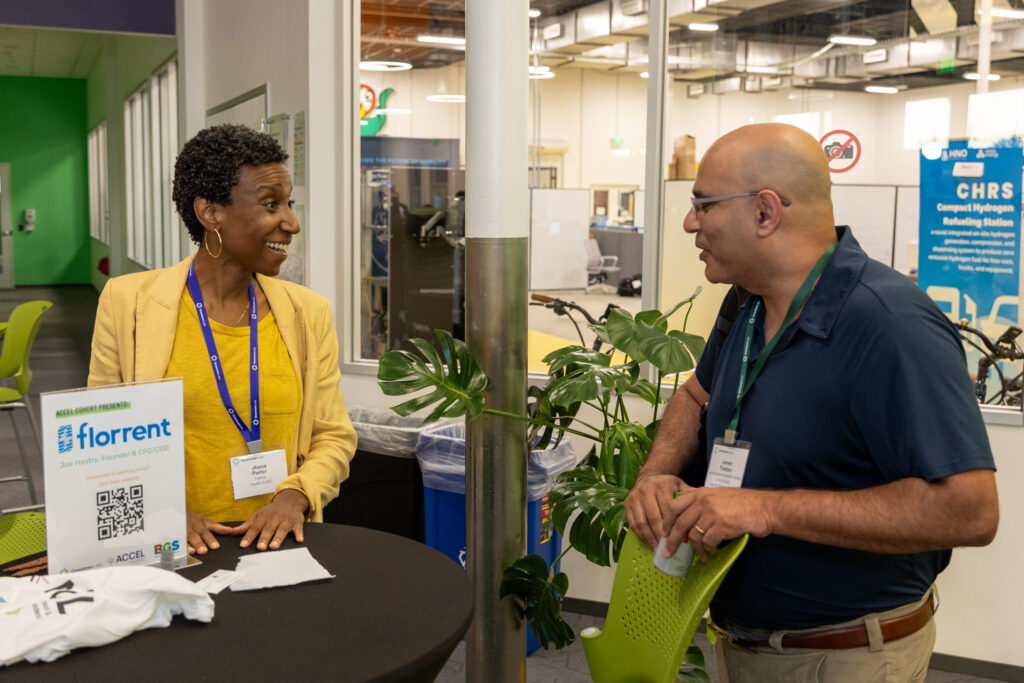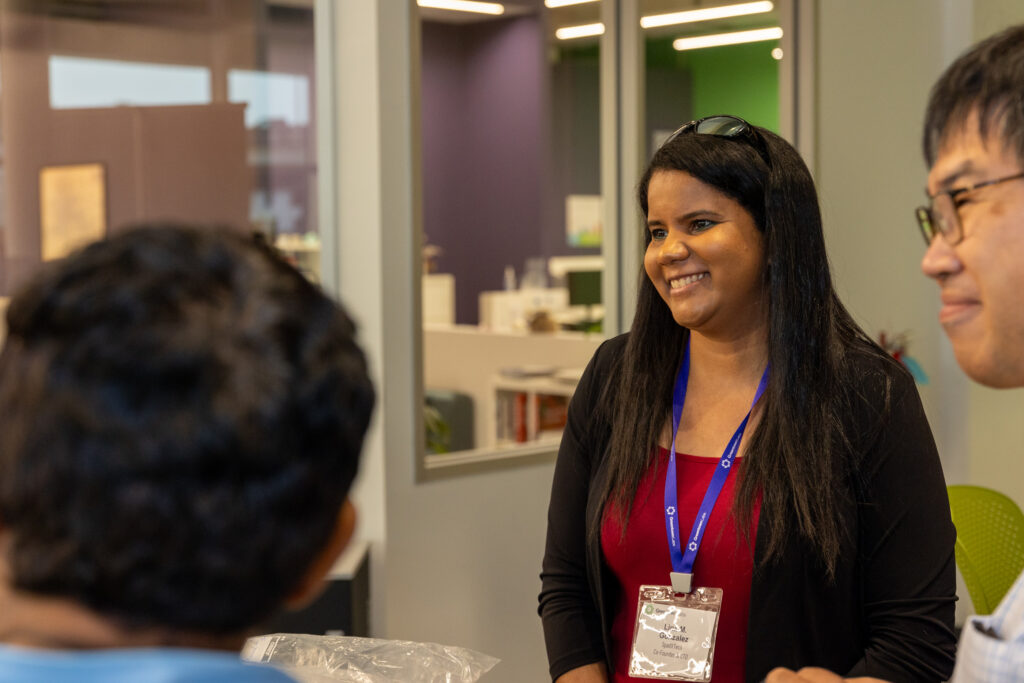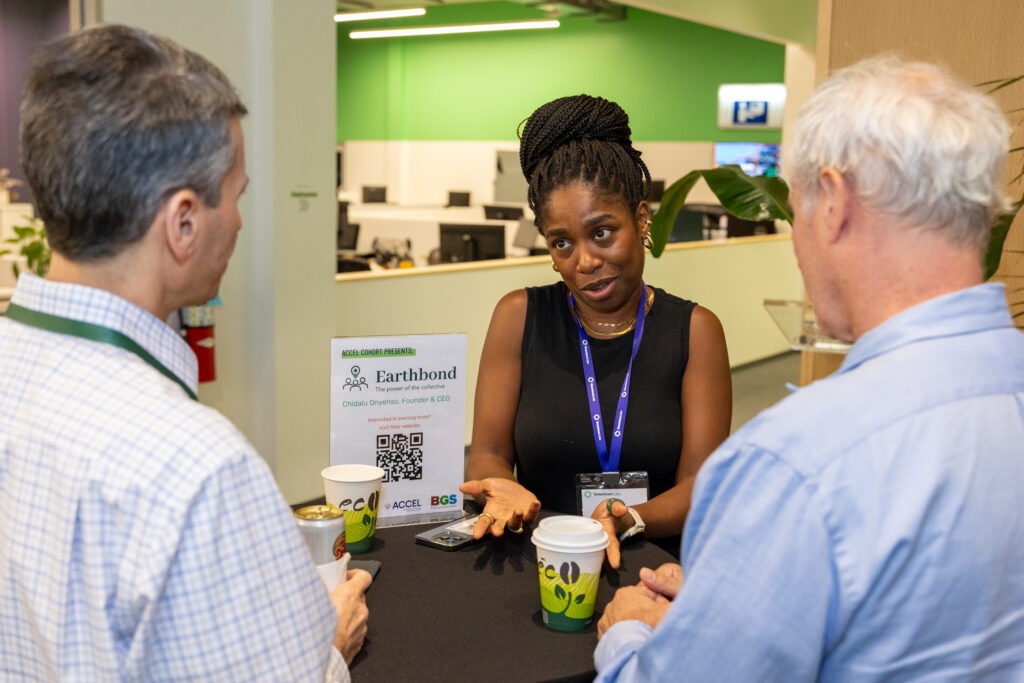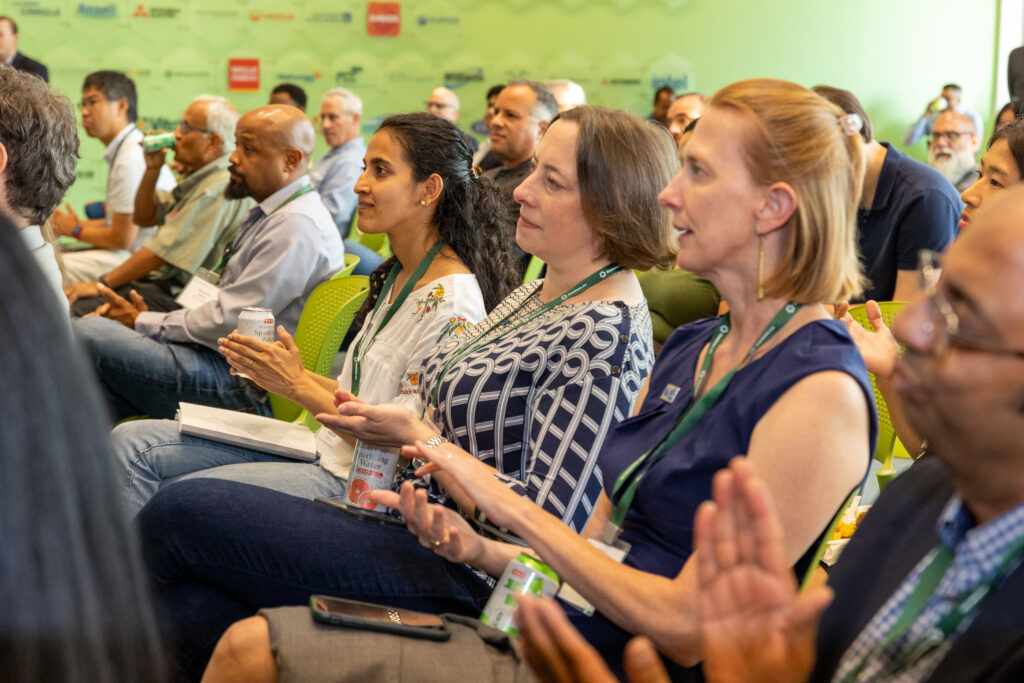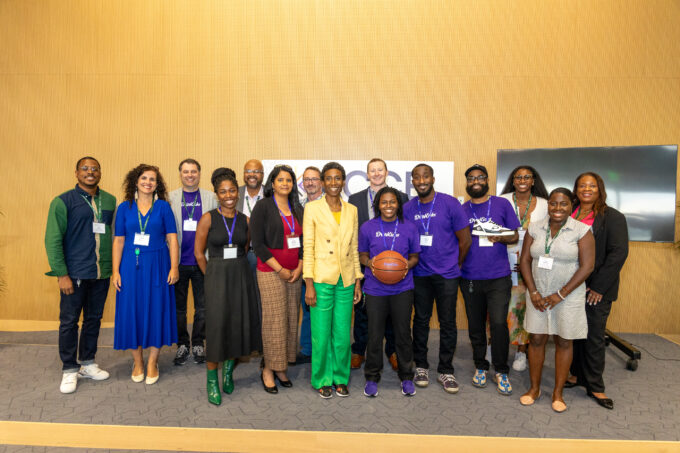Sneakers made from food waste. Ultracapacitors built with hemp sourced from Black and Indigenous farmers. Ultra-light solar panels you can place anywhere. These are just some of the groundbreaking climatetech solutions being developed by the inaugural ACCEL cohort.
ACCEL is an accelerator from Greentown Labs and Browning the Green Space (BGS) that’s dedicated to bolstering BIPOC-led startups as they develop critical climatetech solutions by offering access to funding, networking connections, resources, and opportunities that structural inequities put out of reach. This year-long program combines acceleration with a curated curriculum, incubation through a Greentown membership, and extensive mentorship from Greentown and BGS’s networks of industry experts.
Over the past six months, the participating startups—Active Surfaces, DrinKicks, EarthBond, florrent, frakktal, and SpadXTech—have gone through comprehensive training with our Curriculum and Resources Partner VentureWell, diving into everything from product-market fit, to value proposition development, to customer discovery and relations. They’ve met regularly with expert mentors, reached key milestones, and charted their paths forward.
This month, they presented their incredible climate technologies at an ACCEL Showcase at Greentown Houston. Check out a recording of the event below, and read on to learn about each startup, the climate impact of their technologies, and their progress during the program!
“At the nexus of the racial wealth gap and climate change is ACCEL.”
– Kerry Bowie, Executive Director of BGS, at the ACCEL Showcase
Thank you to ACCEL’s funders—the Massachusetts Clean Energy Center, Barr Foundation, bp, The Ion, and Microsoft—for making this program possible.
ACTIVE SURFACES
Imagine putting solar panels on top of an EV to extend its range, or rolling out modules to provide power following a natural disaster. Or picture putting solar atop every warehouse and distribution center in the United States, which would reportedly generate enough energy to power all homes in each state’s largest city.
Active Surfaces is working to make these innovations possible. The startup’s solar modules are 100x lighter than traditional solar panels, without sacrificing any efficiency and with a cost floor below what’s in the market now.
Co-founded by Shivam Bhakta and Richard Swartwout, Active Surfaces has received many prizes and honors this year. The startup won $25,000 from the New Climate Ventures Sustainability Investment Prize at the 2023 Rice Business Plan Competition; took home the grand prize and audience choice award at the MIT $100K LAUNCH Competition; and was selected for both the 2023 Cleantech Open Northeast and Venture For ClimateTech cohorts.
“ACCEL has been a huge, foundational jump for us,” Swartwout says. “The mentors have been great, the community it’s created has been very helpful, and it’s also allowed us access into other communities as well. It’s been a very good acceleration pathway.”
DRINKICKS
DrinKicks is developing sneakers made from food waste and recycled materials in an effort to engage the sneaker-enthusiast community in circularity. Its co-founders are Kristeen Reynolds and Michael Fletcher.
During the ACCEL program, DrinKicks hosted its first annual sneaker drive at Greentown Houston, where the startup refurbished more than 100 pairs of old shoes and distributed them to underserved youth while demonstrating the ancillary services and opportunities that contribute to an equitable circular economy. Greentown partner ENGIE North America was a sponsor of the sneaker drive, which brought together local nonprofits, business owners, educators, and many climate champions.
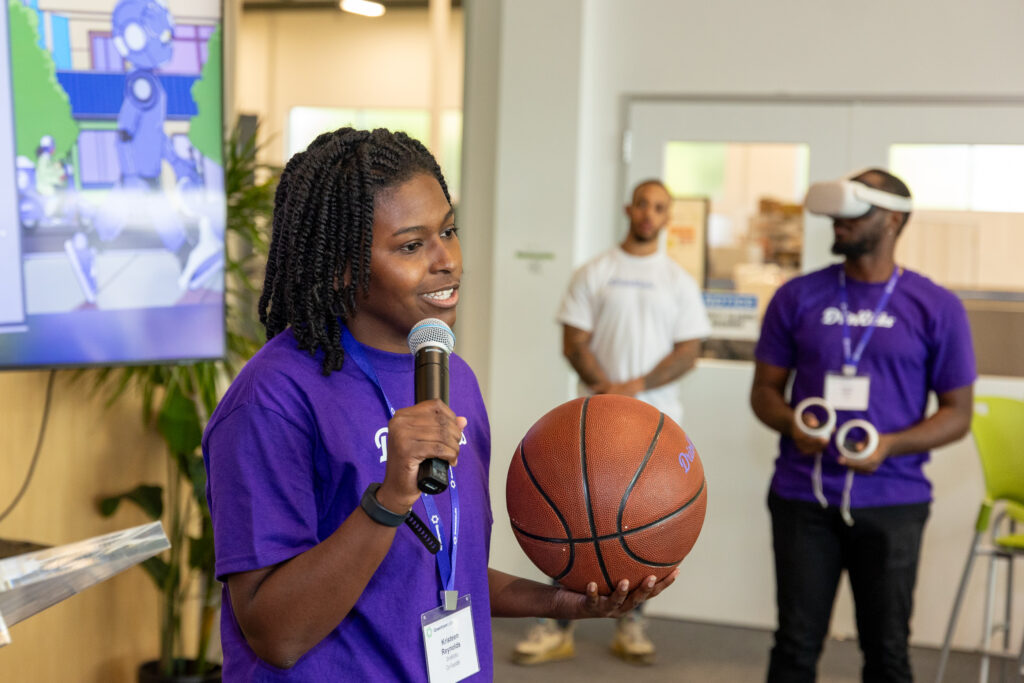
EARTHBOND
Chidalu Onyenso is a dual citizen of Nigeria and the U.S., a newly minted Harvard Business School grad, and on a mission to bring reliable, clean energy to Nigeria’s small and medium businesses.
“I was testing what financing owners of small and medium businesses need in Africa; I talked to so many and did a lot of market research interviews, and it kept coming down to energy,” she says.
Onyenso is the founder of EarthBond, a startup leveraging solar financing to replace businesses’ diesel- and petrol-generator use in “under-grided” areas. Only about half of Nigeria is connected to the electric grid, and even those who have grid access typically get just six to eight hours of power per day, Onyenso explains. Many types of companies can’t operate on such inconsistent energy, and so business owners rely on generators to fill in the gaps—a dynamic EarthBond is setting out to change.
“The most exciting thing we’ve accomplished during ACCEL has been growing our team from one to three,” Onyenso says. “We’ve acquired two banking partners and we’ve grown our wait list to over 1,000 leads. We’ve gotten to a completely different place from where we’ve started, and a lot of that has been due to both the funding and the mentorship that we’ve gotten from ACCEL.”
Read more about EarthBond and check out a video featuring Onyenso.
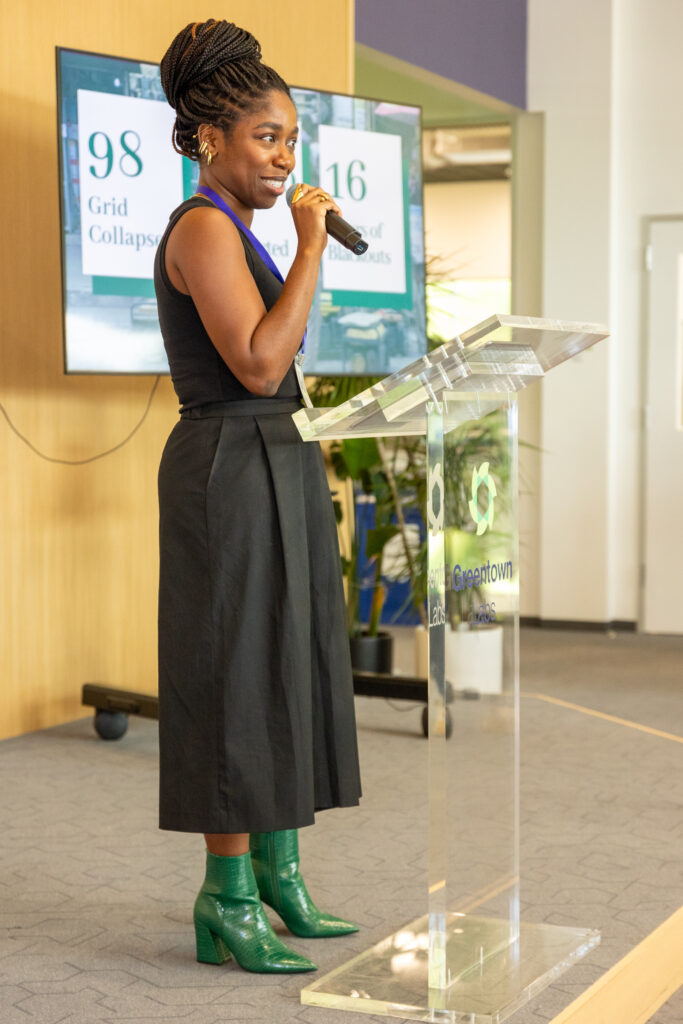
FLORRENT
florrent is developing “marathon runner” energy storage solutions called ultracapacitors made from hemp farmed by indigenous BIPOC farmers. Its co-founders are Jose LaSalle, Joe Hastry, and Alexander Nichols.
Ultracapacitors complement batteries in the grid-scale use of renewable energy, and by supporting locally farmed hemp, the startup says it’s both sequestering carbon in hemp and “sequestering wealth” in the farmers’ communities.
If its tech is deployed at scale, florrent says it can enable the abatement of 1.5 gigatons of carbon by 2050 (through supporting the use of renewables) and can sequester 2.2 megatons of carbon in the same period.
During ACCEL, florrent raised a $2.1M pre-seed round and LaSalle was selected for Activate’s 2023 cohort. Its next major milestones are alpha production and commercial validation of its activated carbon, a key component of ultracapacitors.
Read more about florrent and check out a video featuring its CEO.
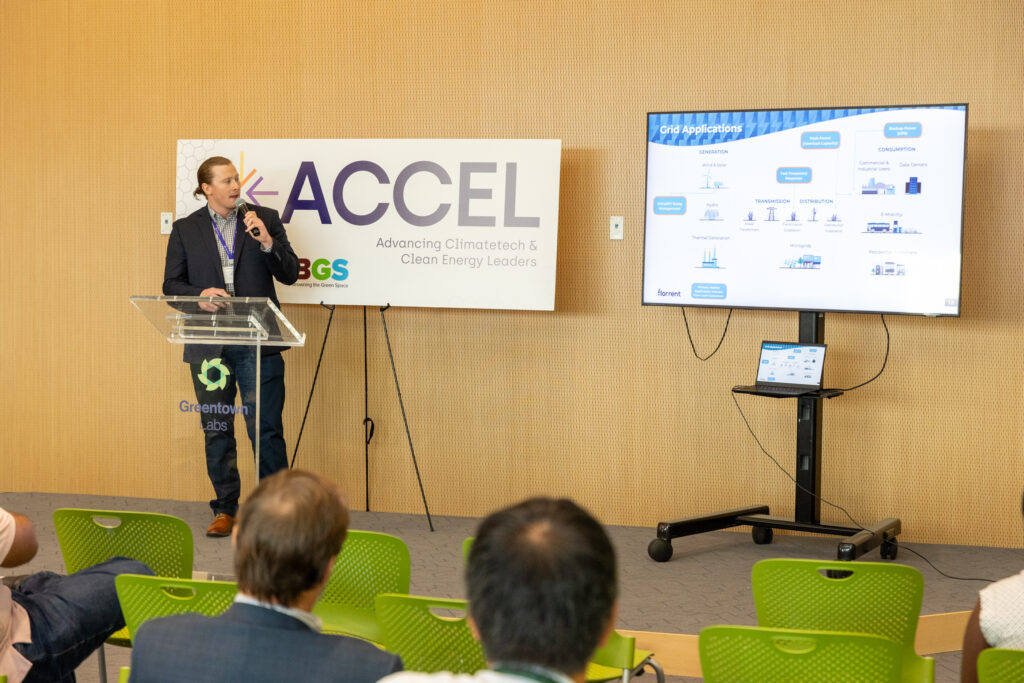
FRAKKTAL
Polyvinyl chloride (PVC) is a synthetic plastic polymer made from fossil fuels, and it forms one of the most common types of plastics. ACCEL participant frakktal is developing biobased polymers that can directly replace harmful PVC.
Founded by jhana porter, the startup’s first product tackles the building industry—which utilizes 70 percent of the PVC produced each year—specifically, the flooring space.
frakktal’s polymers’ climate benefits over PVC are overwhelming, from not using fossil fuels as feedstock, to not requiring high manufacturing temperatures, to not incorporating any harmful chemicals. The startup’s polymers are circular, meaning they can be used as a feedstock to create more product; if the product was disposed of, however, it’s compostable. frakktal also prioritizes local feedstock sourcing, production of its polymers, and deployment of its product, meaning that shipping-related emissions are low.
Read more about frakktal and check out a video featuring porter.
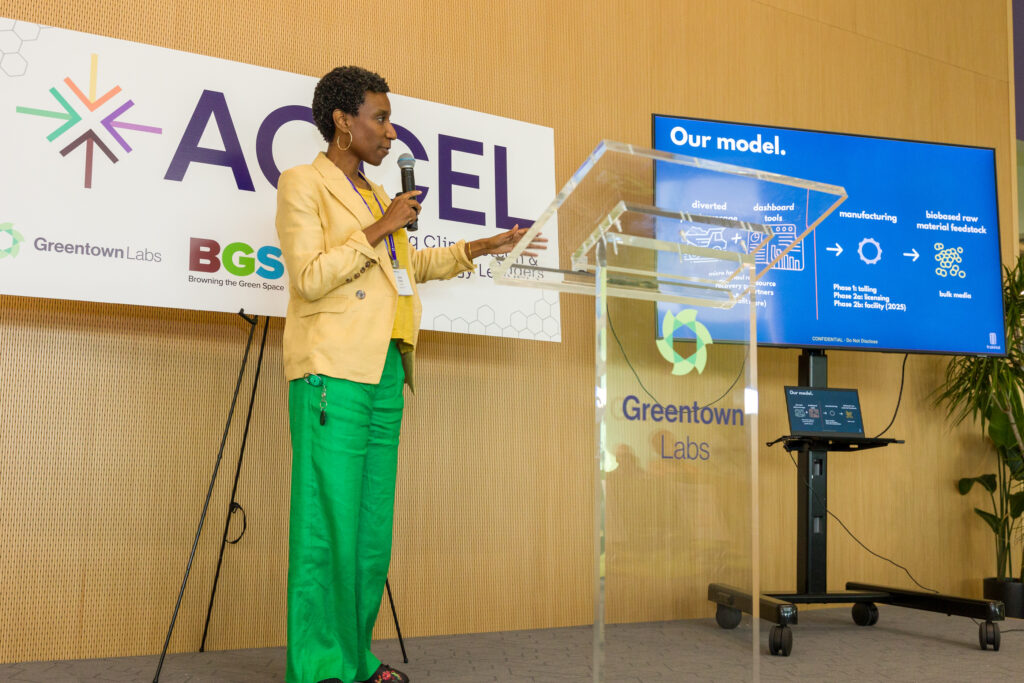
SPADXTECH
SpadXTech is reducing emissions in packaging, textiles, transportation, filtration, and more through its core and versatile material platform technology. Its co-founders are Lina M. González and Connor Crawford.
SpadXTech’s microbes eat sugar and channel carbon to spin out cellulose fibers, which the startup can then process into a wide range of materials, including plastic-free, vegan leather—the startup’s first product. The end material is carbon-negative, Gonzaléz explains, because the microbes upcycle carbon and SpadXTech uses renewable energy for its processes.
The startup has conducted over 250 customer interviews, and recently received non-dilutive funding from the National Science Foundation, the Massachusetts Clean Energy Center, and FORGE. SpadXTech plans to begin raising its seed round in the coming months.
Gonzaléz shared at the showcase that ACCEL supported her company in executing customer interviews, preparing for fundraising, writing a mission statement, meeting potential investors, and more.
“We improved our pitch deck a lot through ACCEL,” Gonzaléz says. “The pitch coach helped in terms of how to pitch our idea, how to have the right content, and the right way to present it.”
Read more about SpadXTech and check out a video featuring González here.
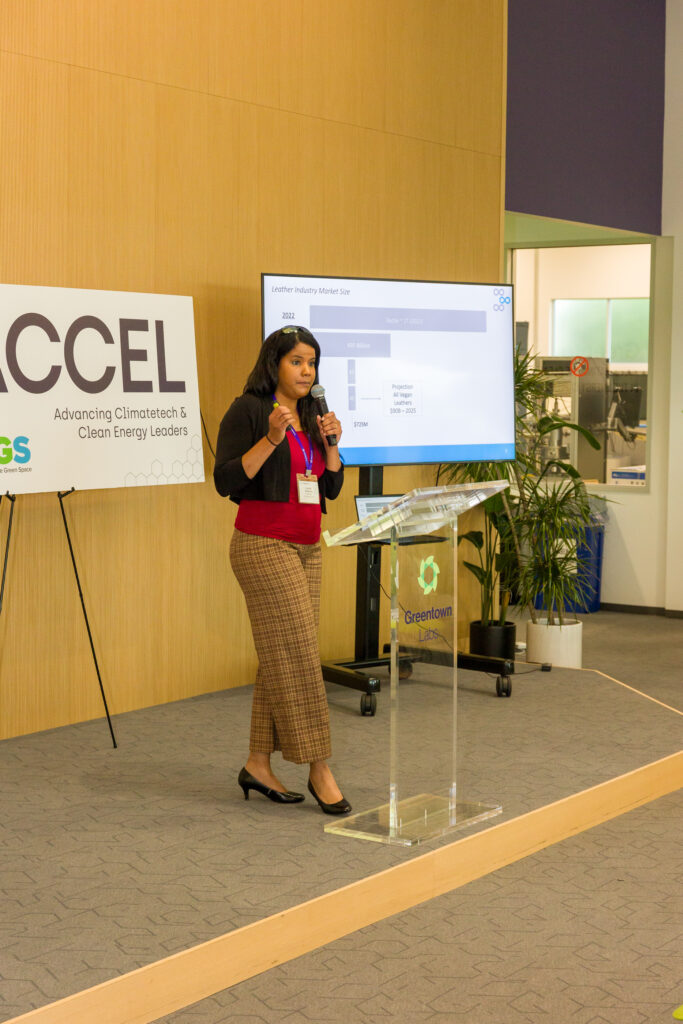
Want to be the first to hear about what’s next for ACCEL? Sign up for ACCEL newsletters here!
Photo Gallery
